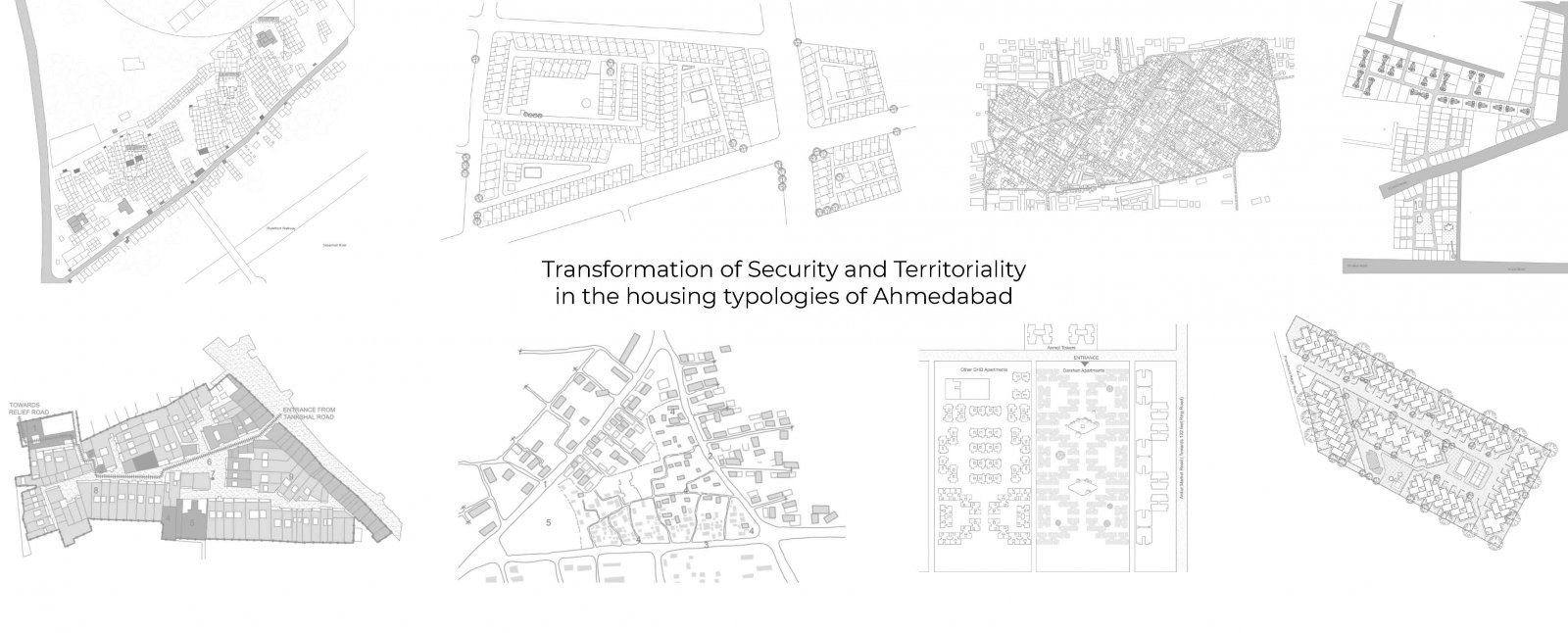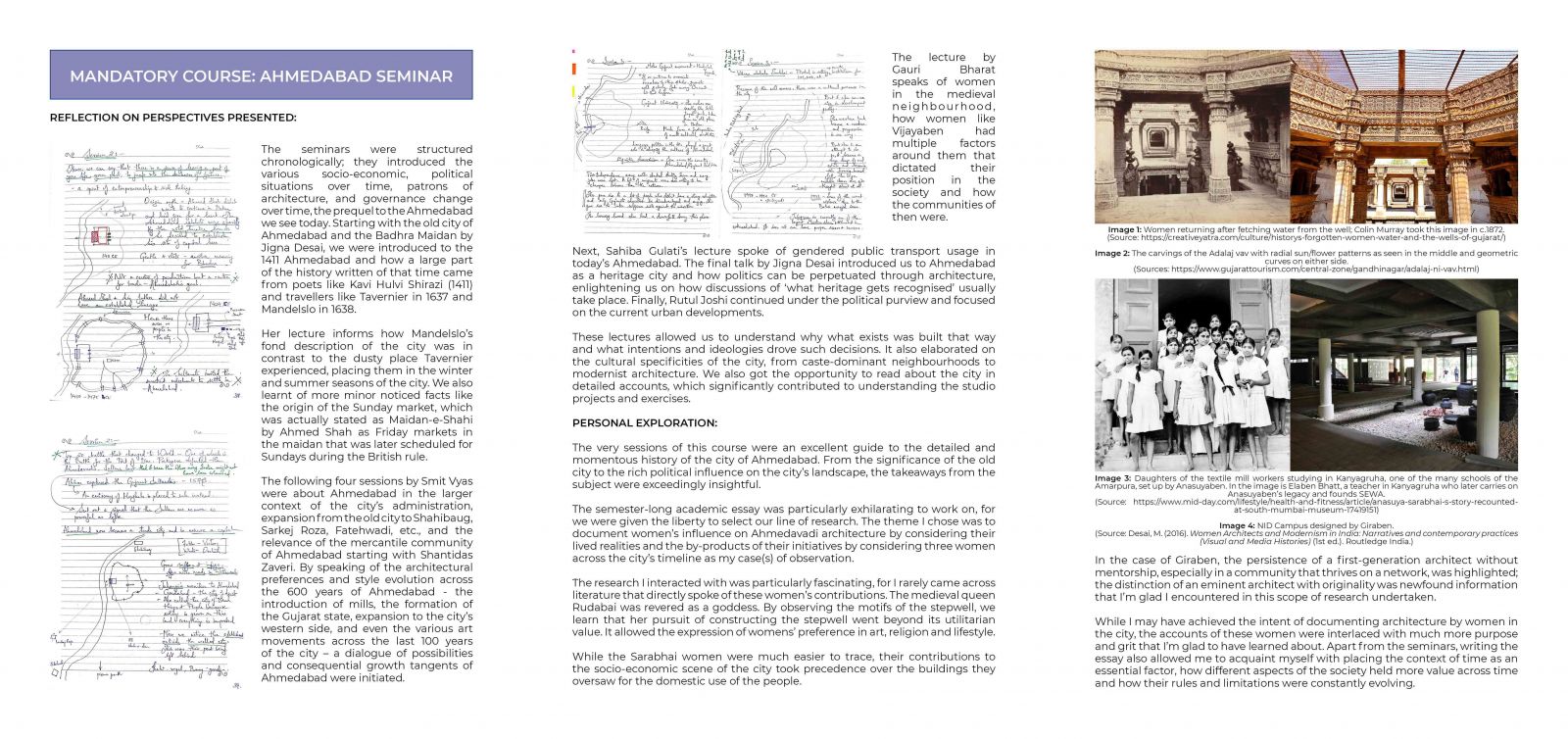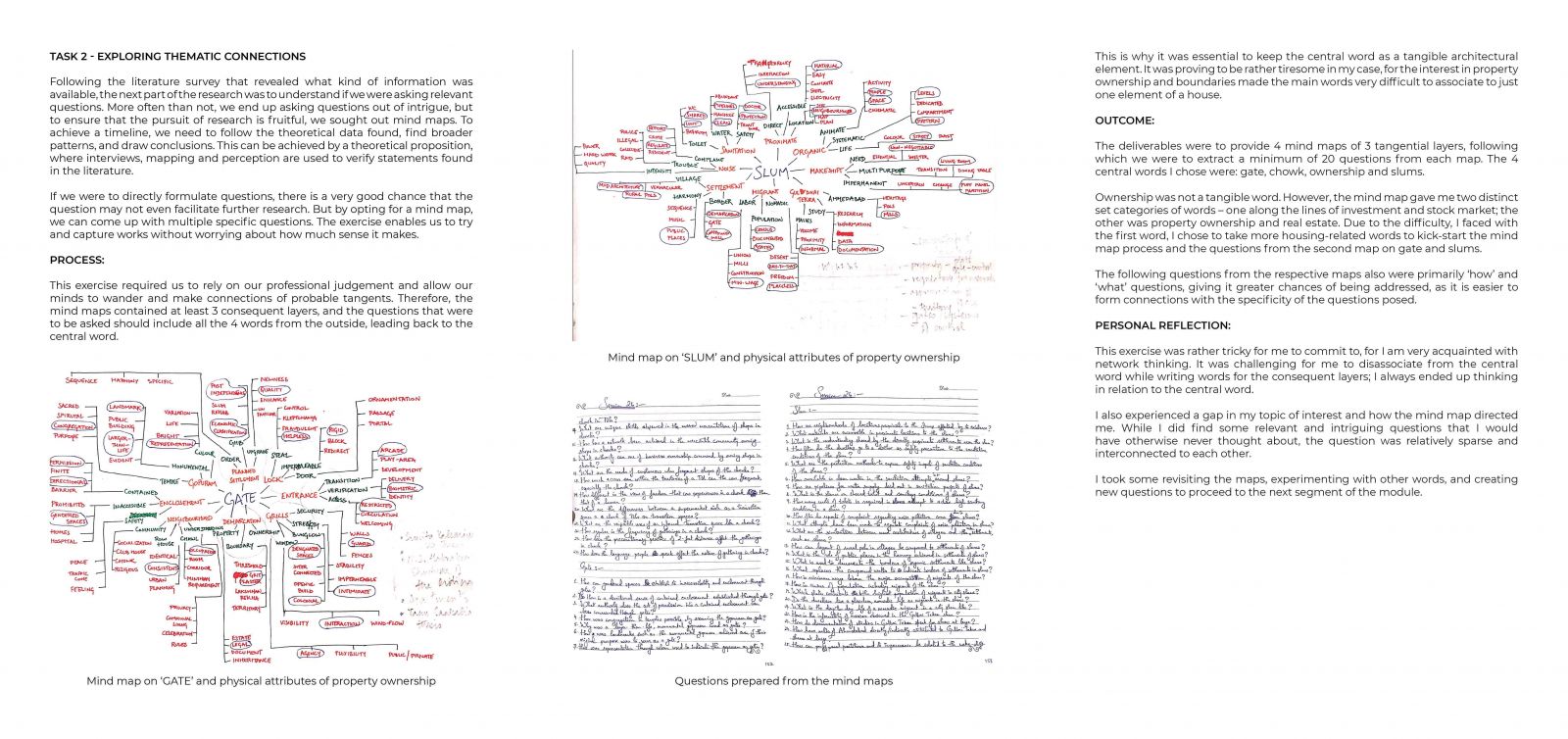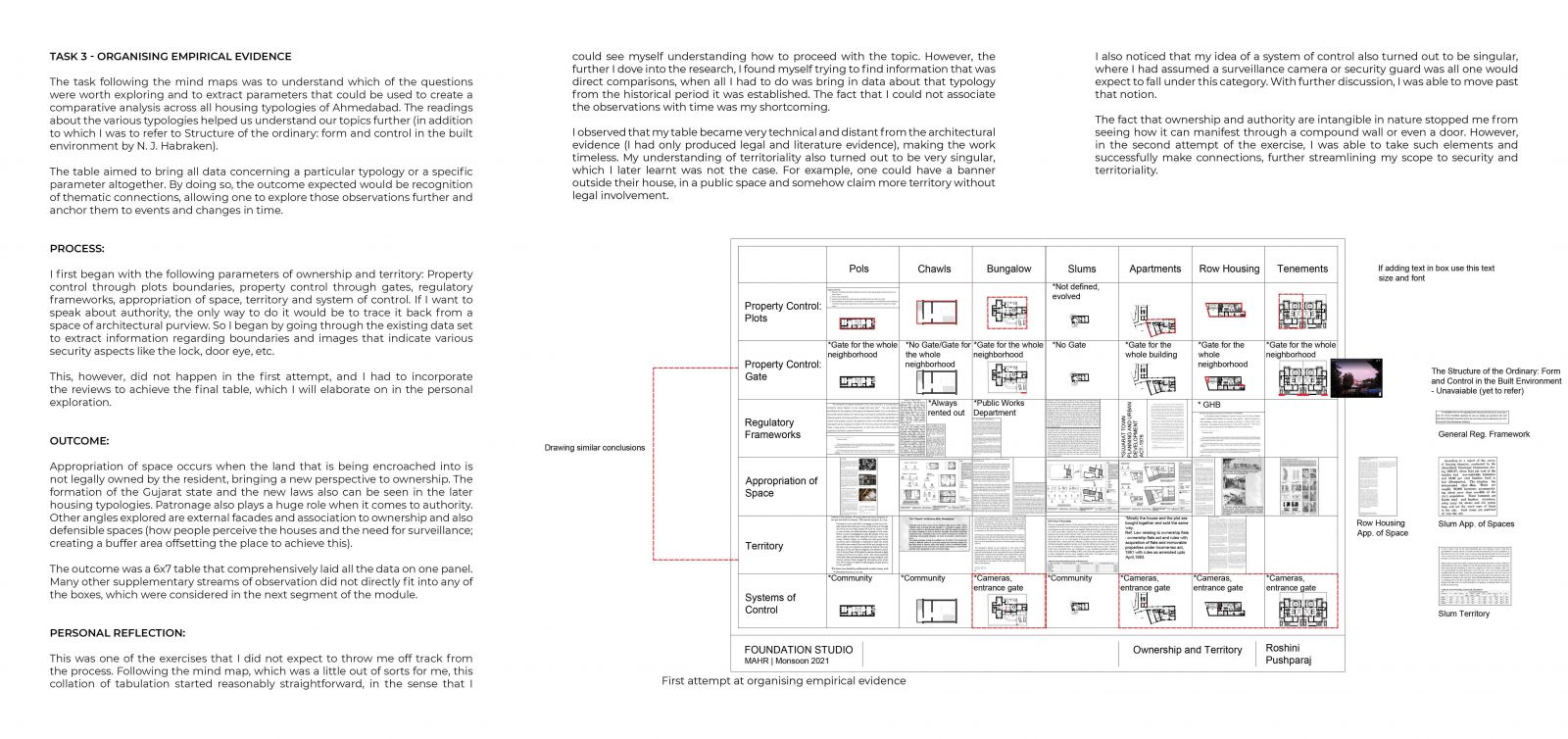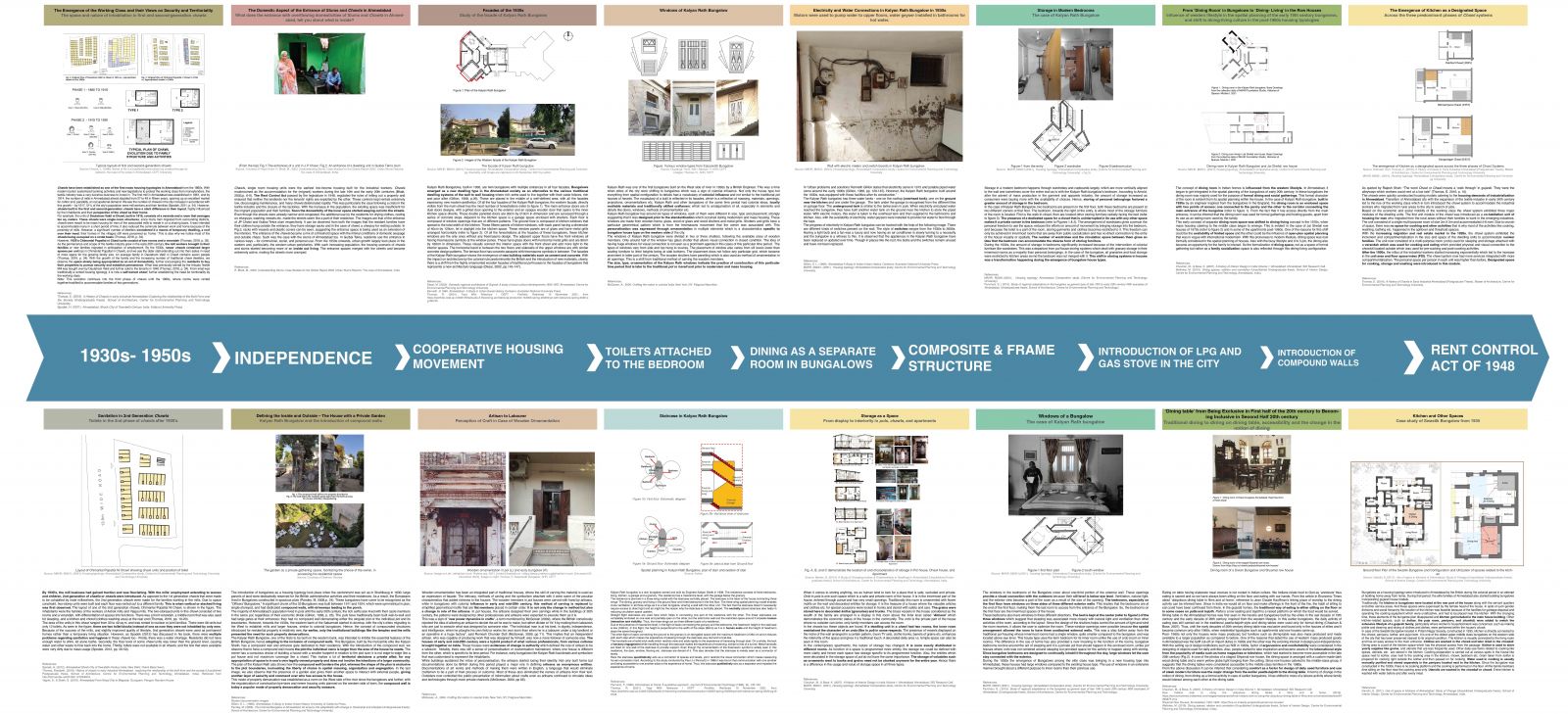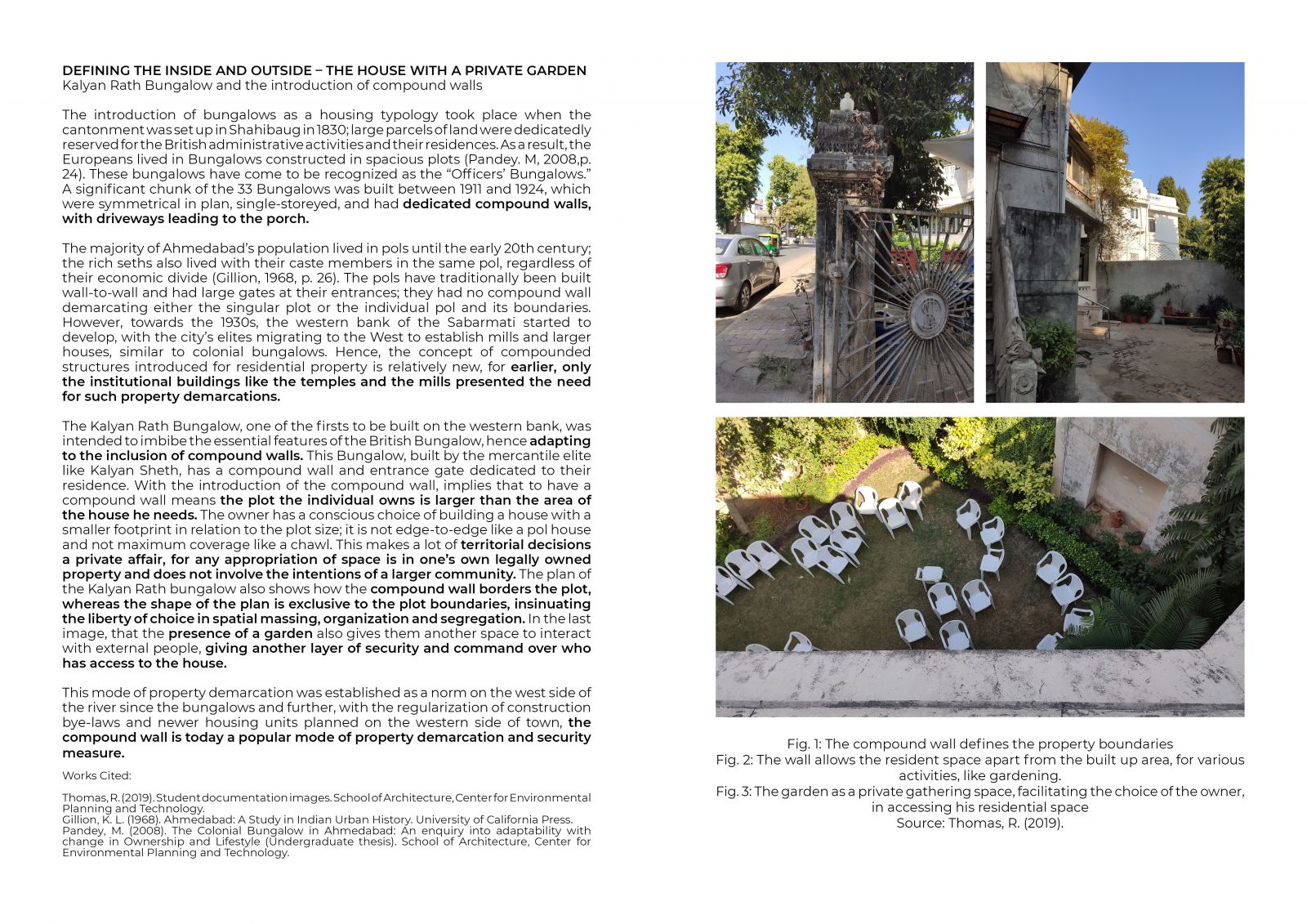Your browser is out-of-date!
For a richer surfing experience on our website, please update your browser. Update my browser now!
For a richer surfing experience on our website, please update your browser. Update my browser now!
The foundation semester introduced us to various architectural history and research aspects through the studio and mandatory courses.
The Histories of Spaces studio was divided into two modules. The first focused on surveying and documenting historically lived environments. Through this process, we acquainted ourselves with the city and learnt to observe the patterns in housing across typologies under the purview of the community relations and lifestyle.
The second module divulged into more intensive research and collation of data to create a comprehensive architectural timeline. Through literature surveys, academic reading, exploration of thematic connections through mind maps and organization of empirical evidence, we streamlined our research along one particular topic. The final segment focuses on establishing connections across time and type regarding security and territoriality in residential dwellings and places of domesticity.
The following mandatory courses have supplemented our studio work across the semester by inculcating fundamental approaches to historical context and domestic architecture.
Approaches to History – History is a mode of accessing the past and not the past itself. Hence there is a plurality to history and not an individual way of interpreting the past. There exist various concepts and schools of thought.
Ahmedabad Seminar – The detailed history of Ahmedabad and its rich association with trade, culture, industrialism and politics is a fundamental reason for the city we see today.
Academic Writing workshop – Introduction to various types of writing and structuring and techniques to achieve them. Written work includes an academic essay, summary writing, book review, and research paper.
